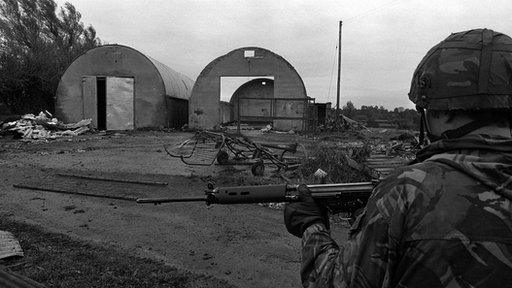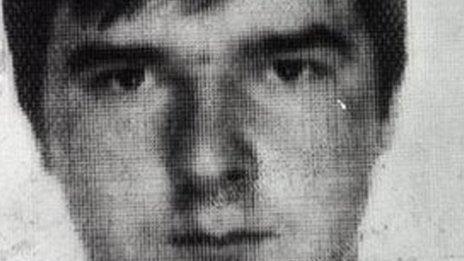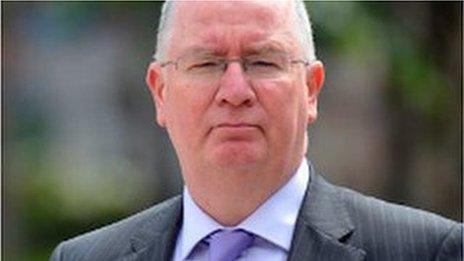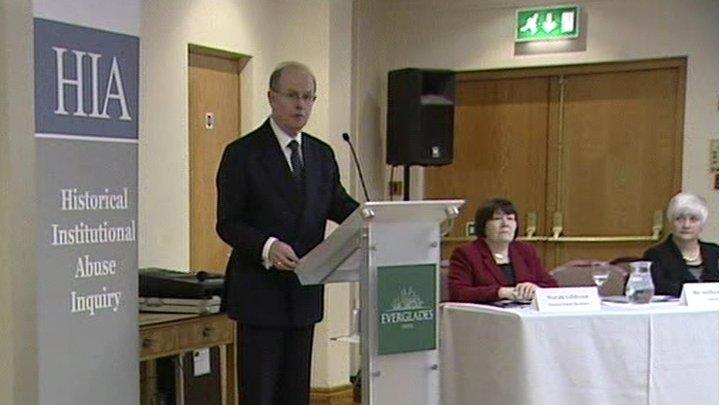HIA inquiry 'may be Troubles inquest model'
- Published

Lord Chief Justice Sir Declan Morgan's comments were contained in a Court of Appeal judgement
The Historical Institutional Abuse Inquiry could provide the template for Troubles killings inquests, Northern Ireland's most senior judge has said.
Lord Chief Justice Sir Declan Morgan said: "It is abundantly clear that the present arrangements are not working."
Sir Declan said it would be possible to have "all the legacy cases taken out of the inquest system" to be dealt with in "a time-bound inquiry".
His comments were contained in a Court of Appeal judgement released on Monday.
Court of Appeal judges delivered their reasons for upholding a High Court judge's decision to quash the verdict of the jury in the inquest into the death of an IRA man 22 years ago and order a fresh inquest before a new coroner.
Obligations
Pearse Jordan was killed in disputed circumstances on the Falls Road in west Belfast in 1992.
His death was one of several high-profile cases involving claims the security forces were involved in shoot-to-kill incidents.
Sir Declan said it was not the role of the Court of Appeal to determine how the government fulfils its obligations under article two of the European Convention of Human Rights - where investigations have to be reasonably prompt.
However, he said it seemed inevitable that this requirement would continue to be breached unless there was a new approach.
In suggesting the Historical Institutional Abuse Inquiry "might provide the basis for an effective solution", he said it would need to be chaired by someone with senior judicial experience.
"The inquiry would need facilities for independent investigation and powers of compulsion in respect of witnesses and documents," he said.
'Careful consideration'
Sensitive information would be blacked out but enough information would be provided for legal teams to mount an effective challenge.
"The procedures for any oral evidence would need careful consideration," he said.
The Historical Institutional Abuse Inquiry is examining allegations of child abuse in children's homes and other residential institutions in Northern Ireland from 1922 to 1995.
The panel consists of the chairman and two other government-appointed inquiry members who will then produce a final report.
Sir Declan said that finding a solution was a matter for the Stormont Executive and Assembly, but he hoped his observations would be of assistance.
"Unless a solution is achieved we will continue to incur considerable public expense in legal challenges and claims for compensation such as those arising in this case and the subject of further hearing," he said.
- Published7 November 2014

- Published14 October 2014

- Published23 January 2013

- Published13 January 2014
